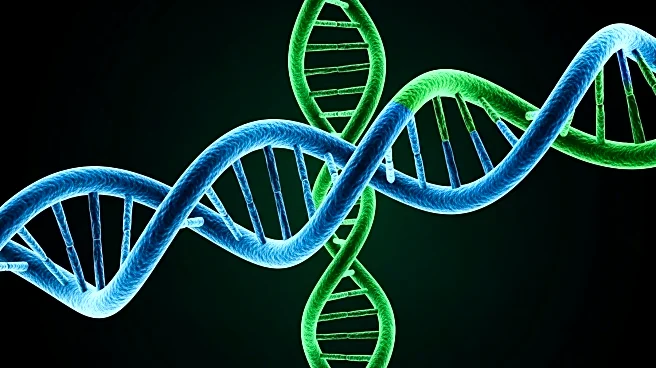What's Happening?
Naked mole-rats, known for their long lifespans compared to other rodents, have been the subject of recent genetic research. A team of researchers in China has published findings in Science that reveal the genetic basis for the naked mole-rats' longevity. The study highlights the role of enhanced DNA repair mechanisms, particularly through homologous recombination (HR), which is often linked to aging. The research focused on the DNA sensor cyclic guanosine monophosphate–adenosine monophosphate synthase (cGAS), which in humans and mice suppresses HR, but in naked mole-rats, it enhances DNA repair. The study demonstrated that small changes in the amino acid sequence of naked mole-rat cGAS significantly impact DNA repair and longevity. These findings suggest that targeting cGAS to enhance DNA repair could be a potential strategy for promoting longevity.
Why It's Important?
The discovery of enhanced DNA repair mechanisms in naked mole-rats is significant as it provides insights into potential strategies for extending human lifespan. By understanding how naked mole-rats maintain DNA integrity, researchers can explore interventions that mimic these mechanisms in humans. This could lead to advancements in anti-aging therapies and improve health outcomes by reducing age-related deterioration. The study also opens avenues for further research into genetic modifications that could enhance DNA repair processes, potentially leading to breakthroughs in longevity science and healthcare.
What's Next?
Future research may focus on applying the findings from naked mole-rats to human genetics, exploring how cGAS can be targeted to enhance DNA repair in humans. Researchers might investigate the feasibility of genetic interventions or treatments that replicate the protective functions observed in naked mole-rats. Additionally, studies could explore the broader implications of these mechanisms on age-related diseases and overall healthspan, potentially leading to new therapeutic approaches in gerontology.
Beyond the Headlines
The ethical implications of genetic interventions for longevity are complex and require careful consideration. While enhancing DNA repair mechanisms could improve health and lifespan, it raises questions about accessibility, equity, and the societal impact of extended lifespans. Researchers and policymakers will need to address these issues as scientific advancements progress, ensuring that benefits are distributed fairly and ethically.









